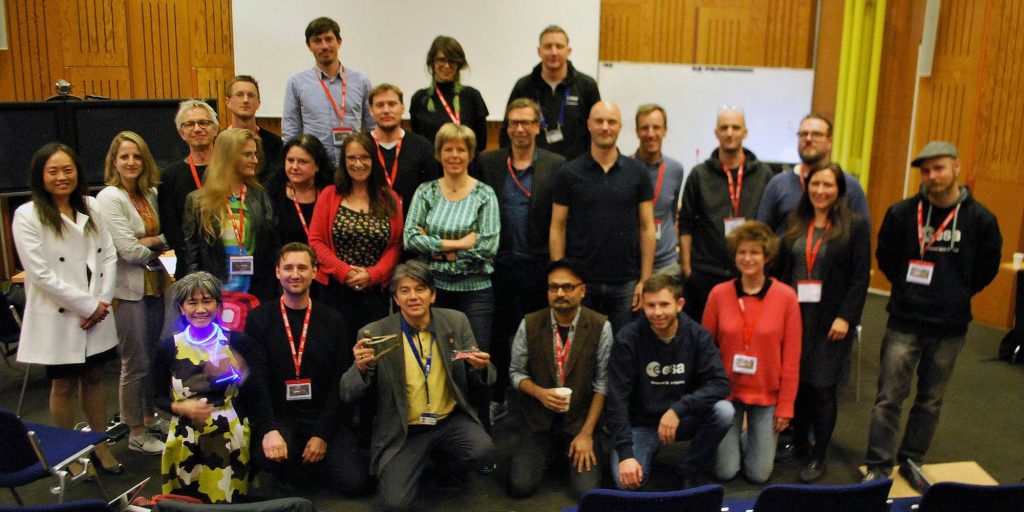Creativity driving research in outer space
STARTS Talk at ESA/ESTEC – 15th May 2019
A report by Miha Turšič
The STARTS Talk at ESA/ESTEC was organised on 15th May 2019 by ILEWG, Waag and European Commission. The main objectives for the event were to explore links between ESA space research activities related to arts and the STARTS programme, to identify benefits and impact of recent art-science collaborations, to showcase artistic, creative and critical methods of research and innovation, and to address human and social challenges in a holistic manner.
Presentations from speakers showcased EC’s engagement in the creative and innovative potential that lie at the intersection of the arts with science and technology (P. Friess), an inclusive approach to space research, recognising a need to involve citizens from a variety of cultural backgrounds and also students (B. Foing), collaborative and transdisciplinary work of students and researchers on evolutionary engineering approach that supports the unpredictability of the outer space conditions (A. Vermeulen), national and European startups taking up space technologies, ranging from earth observation to results of scientific experiments on the ISS (M. Leinweber), and involvement of artists as catalysts into research and innovation projects, but providing alternative means of communication and narratives (A. Bauer).
The panel discussion clarified that innovation process requires novel perspectives, and that artists usually play a crucial role in this part, also in the existing space sector. Artists have a capacity to point to facts or issues that the society does not want or cannot discuss, have different perspectives when looking at a problem, and are powerful for visualising big challenges. Their artworks frequently lead to a different kind of innovation, and can help to overcome the problem of ‘future literacy’. Furthermore, participants recognised a need for education to encourage feeling at ease in cultural and also methodological diversity. Space technologies are becoming accessible even for the citizens and artists are starting to develop their artistic spacecrafts. The benefits for established space actors and emerging ones can be best identified through collaborative practices.
The outcome of the STARTS Talk at ESA/ESTEC was a mutual recognition, that collaborations are equally important for the development of new technologies, as well as for the identification of new perspectives. Especially collaborative aspects are those who lead not only to new solutions but also a more diverse and vibrant culture. Participants agreed, to support further diversification of research and innovation practices and to work on a more concrete and inclusive European space narrative and European space culture.



